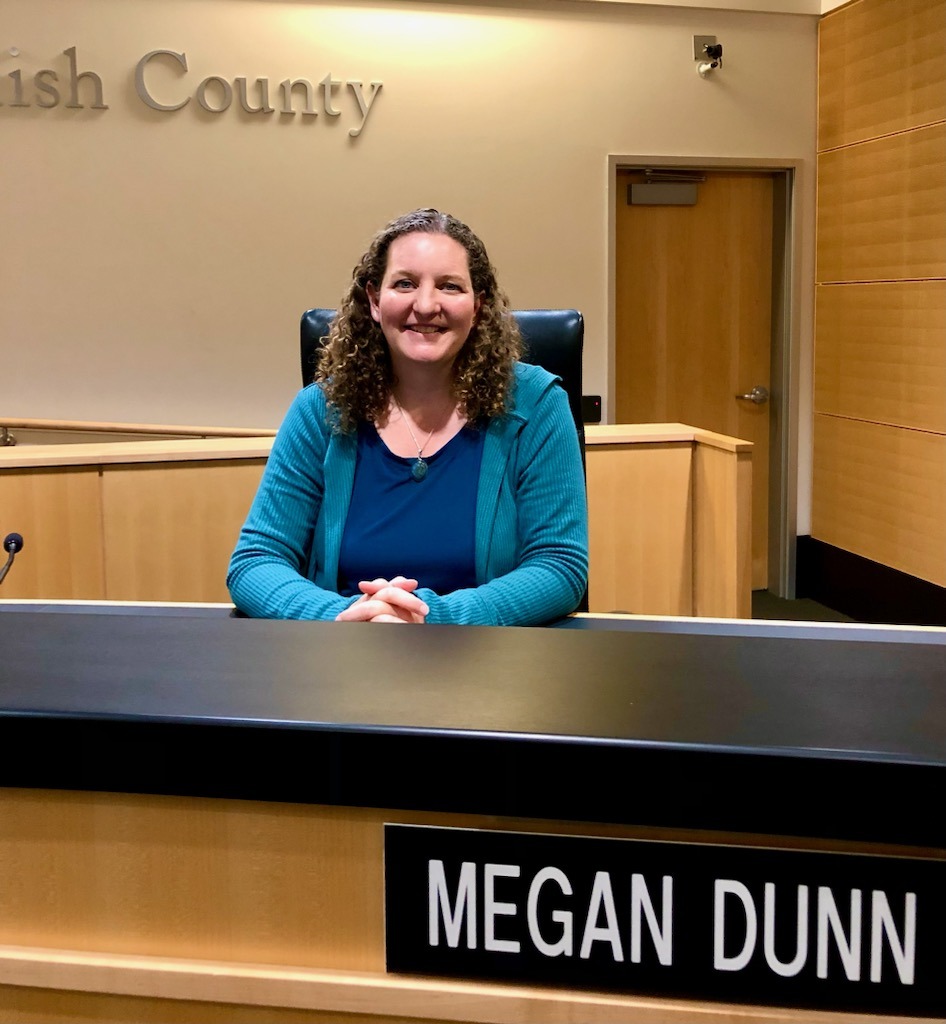Megan Dunn remembers a volunteer outreach event on the hottest day of 2022. “We came across an unhoused pregnant woman who didn’t want to leave her boyfriend. It was heart-breaking not to have enough health and preventive services available to her, that we couldn’t do more than offer her a popsicle and water.”
Dunn, who has been the Snohomish County Council District 2 representative since 2020, adds that homeless shelters for families are rare because most shelters either accept only men or single women. Over the past two years, she has championed sustainable solutions to address housing, including passing HB 1590 – a business plan to fund affordable housing and behavioral health facilities – and promoting the County to purchase and operate two hotels as homeless shelters. “So far, we have largely allowed nonprofits and the faith community to be the safety net for our unhoused neighbors,” she says. “But the need is so great that we need to take a more active role in addressing this issue.”
Family homelessness is deeply personal for Dunn. “My grandpa’s family of eight was homeless in Ohio during the Depression, and they lived in the basement of the church. But they later found an apartment and he joined the military. This support allowed us to rebuild ourselves, get housing for the next couple of generations,” she pauses, and adds, “and be in the position to help others.”

Interfaith really meets the need and provides a warm, community space for families to rebuild their lives.
Dunn believes that honest conversations about the economics of homelessness are crucial. “We need to be doing more on prevention, rent relief, tenant protection, and landlord dispute resolution, because the housing crisis is fueling homelessness,” she states. “Senior housing is also important. Many seniors sleep in their cars because they don’t feel safe in shelters, and we need to consider this medically fragile group.”
Challenging social myths about homelessness is also important. “We don’t often see families because they opt for transitional housing, sleeping on couches, or in their cars,” she says. “You can’t tell that they are your kid’s friends at school, or that they slept in their car last night. People need to hear these stories more.”
Although she was aware of Interfaith, Dunn became more involved as multiple agencies and organizations tried to coordinate human services for homeless populations during the COVID-19 pandemic. “Interfaith’s involvement in decision making has been really important, to provide the perspective and value of families’ needs, now and into the future through transformational sustainable change,” she observes. “Interfaith really meets the need and provides a warm, community space for families to rebuild their lives. And we need to protect that.”
